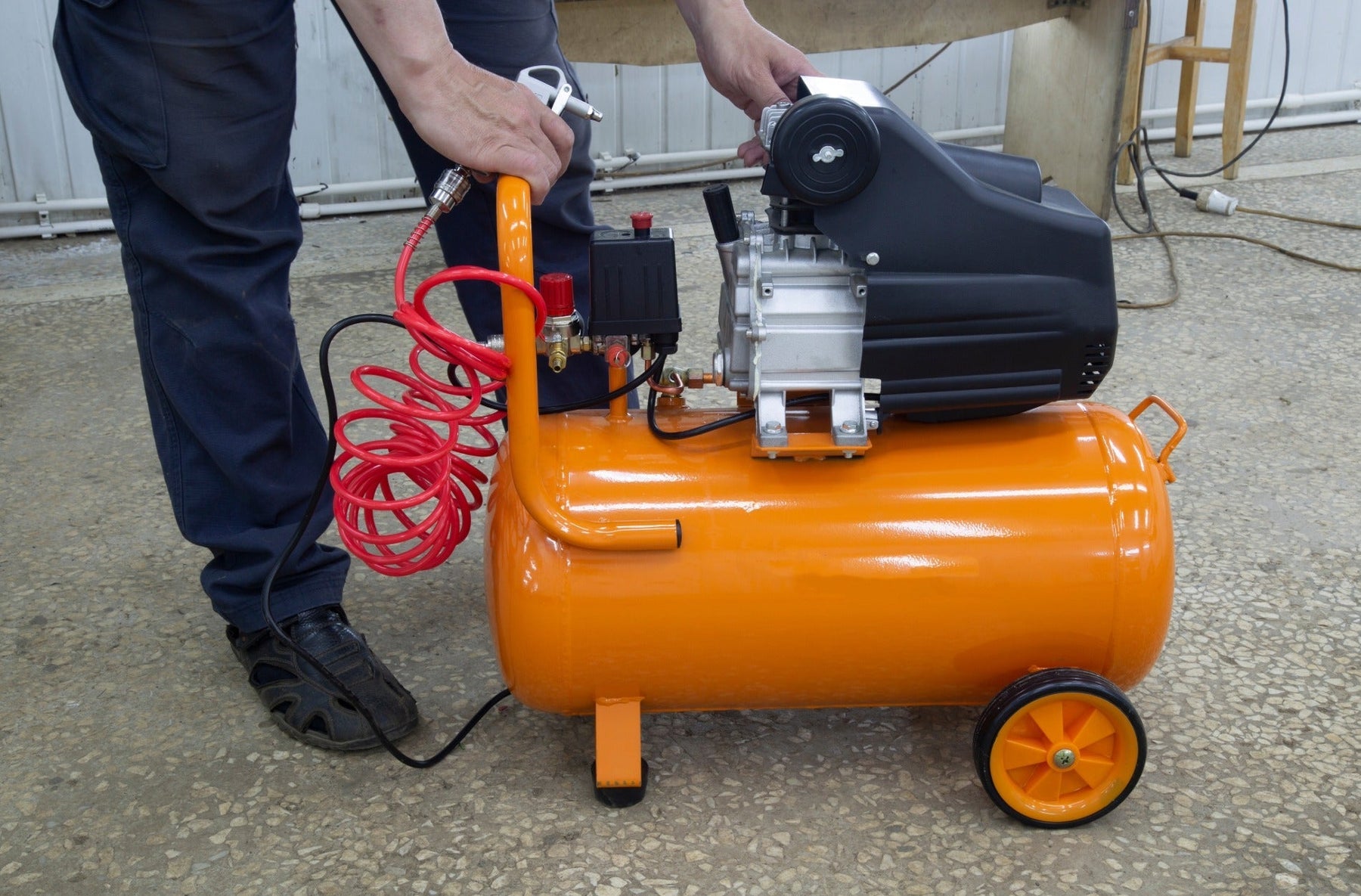
Oil Separator Maintenance Tips
If your air compressor isn’t running quite like it used to, there’s a good chance the issue could be linked to your oil separator. This small, often overlooked part plays a big role in keeping your system in balance. It separates the oil from the compressed air before the air exits the system. When it isn’t working right, everything else starts to fall out of line—air quality drops, components strain, and energy gets wasted.
A neglected oil separator can lead to expensive repairs and frustrating downtime. But when it’s kept in good working condition, your air compressor runs smoother, lasts longer, and stays more energy efficient. Understanding how this part works and how to care for it doesn't require being a specialist. It just takes a little attention and a consistent maintenance plan.
The Role Of Oil Separators In Air Compressors
Air compressors use oil for lubrication and cooling. As air gets compressed, small amounts of oil end up moving through the system with it. This is where the oil separator comes in. Its job is to pull that oil out of the compressed air before the air moves on, either into a storage tank or directly into your tools or equipment.
Without this separation, the oil could contaminate the compressed air or build up in lines and tools, causing clogs and damage. Too much oil in the air can also create safety concerns, especially in environments where clean air is important. On the other hand, stopping too much oil might leave the system under-lubricated. The separator needs to strike the right balance.
By keeping oil and air properly divided, the separator helps maintain:
- Better air quality for equipment and tools
- Longer-lasting compressor components
- Reduced maintenance problems over time
- Consistent pressure and cleaner output
Think of it like the oil filter in a car. If it doesn’t pull out what doesn’t belong, everything else starts to suffer. Clean, separated air protects every part of the system on the downstream side. It only works well, though, when maintained regularly and installed correctly.
Signs Your Oil Separator Needs Maintenance
Catching a failing oil separator early can save your entire system from much bigger issues. Here are the most common signs that this part of your compressor needs attention:
1. Increased oil carryover – If you’re noticing oil buildup in the air lines, outlet, or on your tools, the separator likely isn’t doing its job correctly.
2. Drop in air quality – Moisture or a foggy mist of oil in the output is a sign that airborne oil particles are making their way past the separator.
3. Higher energy use – A clogged or degraded separator causes pressure drops, which make the compressor work harder to keep up.
4. Pressure fluctuations – If the system is having trouble keeping stable pressure, it could be caused by restricted airflow through a dirty or failing separator.
5. Frequent maintenance on other parts – If filters and valves are wearing out faster than usual, too much oil might be moving through the system.
These warning signs usually show up slowly at first, which makes them easy to ignore. But by the time they’re consistent, the separator has likely already been underperforming for a while.
One easy way to stay ahead of this is to set a recurring inspection schedule. Regular checks for oil presence where it shouldn’t be, changes in airflow, or differences in outlet pressure can help you catch problems well before they escalate.
Step-by-Step Maintenance Tips
Keeping your oil separator in good shape involves a few straightforward steps that can save you a lot of trouble down the line. Here’s how you can maintain it without getting overwhelmed:
1. Regular Inspections - Schedule periodic checks on your oil separator. Look for signs of wear and tear, such as oil leaks or clogged parts. Using a flashlight might help you spot any unusual buildups or damage.
2. Cleaning Routine - Dust and grime can accumulate over time, affecting performance. Gently clean the exterior and accessible parts of the separator using a soft brush or cloth. Avoid harsh chemicals. Mild soap and water will often do the job.
3. Filter Replacement - Just like your home’s air filters, the filters in your separator need regular changing. Follow the manufacturer’s recommendations for how often to replace them, and always choose high-quality replacements for better results.
4. Check for Leaks - Oil leaks can lead to reduced efficiency and mess. Inspect connections, seals, and hoses regularly. If you notice any drips or pooling, it might be time to either tighten or replace the faulty parts.
5. Monitor Pressure and Airflow - Keep an eye on your system’s pressure gauge and airflow levels. Any irregularities could indicate your separator isn’t working as it should. Deal with these issues quickly to avoid more serious problems.
These steps are designed to be manageable but effective. When you spot persistent issues or more serious damage, it might be time to call in a specialist.
Tips to Prolong the Life of Your Oil Separator
A little care goes a long way with oil separators. By incorporating a few simple habits, you can extend its life and keep your compressor running smoothly.
- Create a Maintenance Schedule - Consistency matters. Set reminders in a calendar app or on paper to prompt regular checks.
- Use Quality Parts - From gaskets to filters, investing in well-made, durable parts helps boost performance and reduce the chances of failure.
- Educate Your Team - If several people use the compressor, make sure everyone knows the signs of wear and basic maintenance procedures.
These small steps make a big difference over time. They help avoid costly repairs and keep your air system running with fewer interruptions.
Ensuring Optimal Performance With Compressor Filter Hub
Choosing the right replacement parts means fewer headaches down the road. The parts you use directly impact how your system performs, how long it lasts, and how often it needs attention.
At Compressor Filter Hub, we’re committed to offering high-quality aftermarket parts that fit and function like OEM components. When your oil separator and other parts are built to last, the rest of the system operates more smoothly.
Better parts lead to:
- Fewer breakdowns
- Predictable maintenance schedules
- Cleaner, more reliable air output
- Confidence in your system’s day-to-day operation
Taking the guesswork out of part performance lets you focus on what matters—keeping operations moving without delay.
Keeping Your Air Compressor Reliable
Oil separators are key to keeping your air compressor in good working condition. When neglected, they can cause bigger issues that affect every part of your system. With regular checkups, cleaning, filter replacements, and the use of dependable parts, you can make sure your separator keeps doing its job.
The effort you put into maintenance today will pay off down the line. Your air compressor will run cleaner and more efficiently, and you’ll see less downtime. Check out our quality selection at Compressor Filter Hub to keep your equipment working as it should.
Ready to keep your air compressor performing at its best? Learn how a reliable oil separator for an air compressor can help improve performance and reduce downtime. Count on Compressor Filter Hub to provide the dependable parts your system needs to stay efficient.
